Is your website traffic dwindling? You’re not alone. AI, specifically ChatGPT, is revamping the SEO game. This article will guide you through ChatGPT’s impact on SEO and job security in this new age.
Keep reading to find out more!
Understanding ChatGPT
By integrating AI-powered tools like ChatGPT, businesses can revolutionize their content strategies, streamlining everything from customer support to personalized marketing. For companies looking to boost their online presence, collaborating with an SEO marketing India agency ensures that the latest technological advancements are harnessed for improved search engine rankings and visibility.
Users type in questions or statements, and ChatGPT responds promptly with answers that mimic a real person’s way of speaking. Its programming allows it to understand and generate text in multiple languages, making it a versatile tool across various fields including SEO, B2B marketing, and tech support.
The power of ChatGPT lies not just in answering queries but also in its ability to create content that resonates with search engine spiders. It can draft emails, write articles, and even develop code snippets.
Despite these capabilities, experts argue that understanding Google’s constantly updating search algorithms requires more than just AI; it demands human intuition and experience in digital strategy planning.
The intersection of AI technology like ChatGPT and SEO strategies represents both a challenge and an opportunity for professionals.
Moving on reveals how this technology might threaten traditional SEO jobs yet underscores the irreplaceable value humans bring to the table.
Potential Threat of AI in SEO
AI poses a potential threat in SEO due to its contextual understanding limitations, lack of experience, and reliance on direct inputs only. This could impact the accuracy and effectiveness of search engine optimization strategies if not carefully managed.
Contextual understanding limitations
While AI tools like ChatGPT can be useful for basic tasks, their limitations become apparent when it comes to interpreting intricate layers of meaning or anticipating real-world outcomes. For a deeper understanding of SEO’s career potential, many professionals explore SEO career paths to assess its long-term viability.
This gap becomes evident in SEO, where understanding searcher intent and crafting responses that meet these needs is crucial for ranking well in SERPs.
Moreover, AI-generated content can sometimes fail at connecting the dots between related concepts in a way that feels natural to human readers. Despite advances in Latent Semantic Indexing (LLMS) and markup code strategies designed to improve how webpages are crawled and indexed, AI still cannot fully replicate the depth of human insight when creating link-building narratives or deploying tags strategically.
Lack of experience
Lack of experience becomes a significant hurdle for AI technologies like ChatGPT in the SEO field. Without a background in SEO strategy or understanding how different tactics such as link building, keyword research, and crafting meta descriptions impact search engine rankings, AI can miss critical nuances.
This gap means that while AI can generate content, it struggles to optimize it effectively for Google Search without human intervention.
These experts not only understand the technical nuances of SEO but also anticipate future trends that shape the industry. As the landscape continues to evolve, professionals are exploring new tactics beyond SEO to stay ahead, ensuring websites remain competitive and visible despite shifting algorithms.
Their ability to research and apply nuanced SEO principles outpaces what current AI technology offers, showcasing the value of human experience over machine learning alone in this specialized area.
Reliance on direct inputs only
SEO professionals are aware of the potential drawbacks of relying solely on direct inputs. While ChatGPT can generate content based on prompts, it lacks the ability to fact-check or ensure accuracy in information.
This limitation emphasizes the need for human oversight and expertise in crafting SEO strategies that go beyond basic input commands. Developing a nuanced understanding of this issue is crucial for adapting to an ever-evolving landscape.
Moving forward, let’s delve into why AI won’t replace SEO and explore its implications on job security within this realm.
The Value of SEO Professionals in the Era of AI
SEO professionals play a crucial role in shaping effective strategies for online visibility, which is essential for any business looking to thrive in the digital landscape. Read on to delve into how their expertise continues to be invaluable despite advancements in AI technology.
Necessity for human buy-in for SEO strategy
SEO strategy requires human input for its success. Understanding the nuances of each website is essential for tailoring strategies that work best for individual businesses. Crafting prompts and ensuring content accuracy are crucial tasks that necessitate human expertise, as AI may lack the ability to truly grasp the unique requirements of SEO solutions.
Furthermore, while AI can generate content, it often fails to meet Google’s standards and poses a threat of misinformation due to its limitations in fact-checking. Therefore, human buy-in remains indispensable in steering SEO strategies toward success.
Moving on to explore “The Limitations of ChatGPT”…
Crafting prompts requires SEO understanding
Crafting prompts demands a thorough comprehension of SEO principles. Each prompt must be tailored to match the specific goals and audience of the website it serves, encompassing targeted keywords, user intent, and brand identity.
Understanding search engine algorithms is crucial for crafting prompts that drive organic traffic and enhance visibility. It involves strategic placement of keywords, compelling meta descriptions, engaging titles, and user-friendly content structure.
Crafting prompts necessitates an awareness of SEO techniques vital for driving traffic to websites. By integrating relevant keywords seamlessly into prompts and having an understanding of search engine requirements, professionals can ensure optimal performance in today’s competitive digital landscape.Keyword ToolJordanPPCSpamSEMrushMeta-tagRedirectCrawlingHTMLHreflangSoftware Developers.
SEO solutions are unique for every website
SEO solutions cater to the specific needs and goals of individual websites. Tailored strategies underpin successful optimization, allowing for a meticulous approach that addresses the ever-evolving landscape of search engine algorithms.
Understanding these complexities is crucial in crafting effective SEO approaches, ensuring that each website can reach its full potential through targeted and tailored solutions.
Moving forward, let’s delve into the impact of AI on SEO professionals as we explore the evolving dynamics of digital marketing.
The Limitations of ChatGPT
ChatGPT suffers from content accuracy issues, may fail to meet Google’s standards and poses the threat of misinformation. Its limitations are crucial for understanding its impact.
Lacks content accuracy
ChatGPT lacks content accuracy, raising concerns about its reliability as a tool for creating SEO-friendly content. While it excels in generating text, the platform’s output may be misleading or factually incorrect.
This lack of precision could lead to misinformation and negatively impact website rankings. As a result, the need for human oversight and expertise remains crucial in ensuring that content is accurate and aligns with SEO best practices.
Moreover, Google values accuracy and relevance in online content. ChatGPT’s inability to consistently deliver accurate information puts it at odds with Google’s standards, potentially affecting a website’s visibility on search engine results pages (SERPs).
Does not meet Google’s standards
ChatGPT’s inability to meet Google’s standards poses a significant hindrance. The AI lacks the ability to consistently produce content that adheres to Google’s strict criteria for quality, relevance, and accuracy.
This limitation could potentially lead to negative SEO impacts, causing businesses to lose organic search visibility and credibility.
The threat of misinformation
ChatGPT’s potential to generate content at scale brings forward the concern of misinformation. While it can provide responses based on input, its lack of critical thinking and fact-checking capabilities poses a risk.
This could result in the dissemination of inaccurate or misleading information, potentially impacting SEO strategies and content accuracy.
As we explore this aspect further, it’s crucial to consider how SEO professionals can navigate through these challenges while ensuring the integrity of information in their strategies.
The limitations posed by ChatGPT highlight the importance of human oversight in verifying and refining content for accurate representation on digital platforms.
Why AI Won’t Replace SEO
AI won’t replace SEO due to its inability to fact-check and the prevalence of plagiarism.
Inability to fact check
ChatGPT’s inability to fact-check is a significant hurdle in its potential dominance. Unlike humans, it can’t verify the accuracy of information before generating content, leading to the dissemination of misleading or false data.
This poses a serious risk to SEO as search engines prioritize accurate and reliable content. The incapacity of AI like ChatGPT to authenticate facts undermines its efficacy in producing trustworthy and credible SEO material.
Moving on, we must explore how the prevalence of plagiarism further contributes to ChatGPT’s limitations and its impact on the future landscape of SEO.
Prevalence of plagiarism
Plagiarism is a prominent concern in the digital era, as content from various sources can be easily accessed and duplicated. Copying existing material without authorization poses ethical and legal challenges that impact the credibility of online content.
Identifying and addressing instances of plagiarism remain critical tasks for SEO professionals to uphold originality and maintain the quality of web content.
The prevalence of unoriginal or duplicate material across online platforms necessitates vigilant monitoring and measures to deter plagiarized content from gaining traction. Maintaining authenticity in digital output plays a pivotal role in ensuring high-quality user experiences while safeguarding against potential legal ramifications related to copyright infringement.
Disruption to traditional methods of education
Artificial intelligence is disrupting traditional education methods by changing the way information is gathered and analyzed. AI tools like ChatGPT have become popular in educational settings, raising concerns about their impact on traditional learning practices.
These technologies are challenging conventional teaching models by providing instant access to vast amounts of information, potentially altering the role of educators and reshaping classroom dynamics.
AI’s ability to process and generate content quickly may lead to a shift from memorization-based learning towards critical thinking and problem-solving skills. As educators navigate this change, it’s crucial to evaluate how traditional education methods can adapt to coexist with AI-driven approaches that prioritize agility and innovation.
Conclusion
ChatGPT may pose some challenges to SEO professionals, yet it won’t replace them entirely. The value of human expertise in crafting tailored SEO strategies remains crucial. While AI can handle certain tasks, the ever-evolving complexities of SEO require human intuition and understanding that ChatGPT simply cannot replicate.
As we navigate the age of AI, it’s clear that a collaborative approach between technology and human skill will underpin the future success of SEO endeavors.

